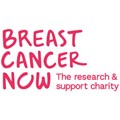Story
Our family is no stranger to cancer. We have a genetic predisposition to the disease because we carry a faulty BRCA1 gene, giving us very high odds of getting breast and ovarian cancer - more than 70% over our lifetime.
Carriers of BRCA mutations are typically diagnosed young and with more aggressive cancers. As most of you know, we had a 100% hit rate and I was diagnosed with triple negative breast cancer in 2015 and my sisters Lou and Alex had the same diagnosis in 2017.
Being diagnosed in your 20s is probably much the same as being diagnosed at any other time of life. It’s at best inconvenient and at worst a horrendous assault on your body, mind and everything you had taken for granted up to that point.
One of the hardest things about diagnosis is that those closest to you suffer too. Supporting someone with a cancer diagnosis is no picnic and Tim and Duncan (as well as other wonderfully supportive family and friends) have cried, laughed, cooked delicious food and pulled hair out of plug holes every step of the way. As sisters we have been in the unenviable position of being both the diagnosed person and part of each other’s support system, which has brought a complex set of emotions to navigate.
The vast majority of breast cancer cases are in people over 55. Being diagnosed at a younger age brings particular challenges - interrupting work at a time you’re focused on your career, questions over fertility, financial concerns, the potential for future diagnoses, and much more. Historically support services (and the millions of leaflets they give you after diagnosis) have aimed at the majority, which can leave younger people feeling isolated and lonely when they don’t see their priority issues reflected in support materials.
Asda’s Tickled Pink campaign has been running for 23 years. In that time, Asda has raised over £60 million for breast cancer charities funding support services and research, including a helpline with specialist nurses and residential courses for younger people, as well as many research projects such as the UK’s first breast tissue bank in Leeds.
We’re aiming to raise £2500 for Tickled Pink by running the Great North Run, a half marathon from Newcastle to sunny South Shields.
Running such a long way is a challenge for all of us - Lou and Alex both had reconstructive surgery earlier this year, I had George in March and Tim has a reoccurring back issue. Duncan has been training solidly despite the sleep deprivation of having three kids two and under. We’re running in celebration of our collective strength, optimism and determination to live life on our own terms - and because the locals that line every centimetre of the course at the Great North Run famously hand out THE BEST homemade snacks!! 🙌🏼
We’re also running for our Aunty Chris, who carries the BRCA1 gene mutation and has had both breast and ovarian cancer, now in remission for 17 years. As kids we remember her upbeat, ‘bring it on’ attitude that would become such an inspiration to us during our own treatment.
It would mean so much to us if you’d could sponsor our efforts. Raising money for cancer can feel like an endless task, but researchers are getting closer to working out what’s going on and treatments are getting kinder to bodies and minds. The stats below show the difference your donation could make to the areas we’re particularly interested in - younger people with breast cancer and research into genetic cancers.
Thank you from all of us for being so lovely and supportive, we’re going to need it!
Love, JLADT xx
17p could give a woman with breast cancer the space to talk freely on Breast Cancer Care’s online forum.
£3 buys 100 pairs of gloves for Breast Cancer Now researchers.
£5 covers the costs of 100 microscope slides allowing Breast Cancer Now’s scientists to study cancer cells in minute detail, to better understand what causes normal cells to become cancerous.
£10 buys 15 flasks for growing cancer cells, essential for Breast Cancer Now’s scientists to understand how cancer cells work and to subsequently develop new treatments.
£12 could help Breast Cancer Care maintain a supportive online community that helps people with breast cancer to feel less isolated.
£30 could give a woman with breast cancer the specialist information and support she needs when she needs it most through Breast Cancer Care’s helpline.
£55 could help a younger woman with breast cancer feel less isolated by attending a residential course with expert information, support and a space to connect with others.
£100 could provide enough of the breast cancer drug Tamoxifen for hundreds of experiments, so scientists can get a better understanding of how breast cancer cells react to drugs.
£225 could give 40 younger women with breast cancer the expert support of a specialist younger women’s nurse for one day at a bespoke event.
£250 would provide one antibody, an essential research tool for scientists to help determine whether certain proteins are involved in the development, progression and spread of breast cancer, helping to identify potential drug targets.
£500 covers the cost of reagents for 50 protein interaction experiments. By looking at how proteins interact with each other inside cells, Breast Cancer Now scientists can get a detailed understanding of how cancer cells work.
£1,000 would pay for the sequencing of one human genome (all of the DNA of one person). Knowing the DNA code of a person and whether this person develops breast cancer allows our scientists to understand what genetic markers make people more likely to develop breast cancer.
